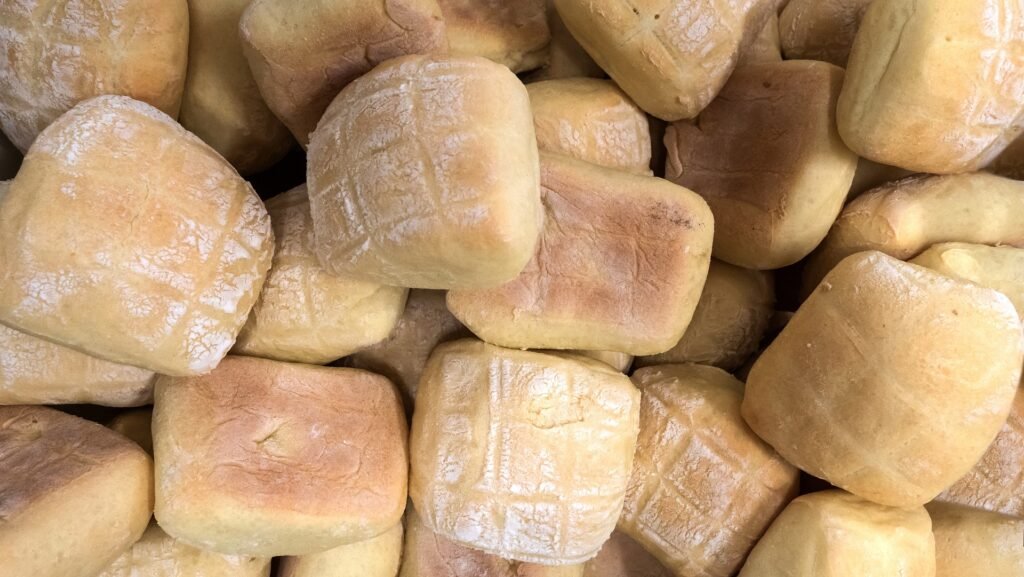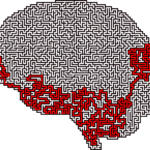Its Impact On Health And Healing

The next step on my healing journey has become about food again. Having identified my problem with dairy two years ago, I have now discovered that gluten is also a problem for me.
What Is Gluten?
Gluten is a protein (a long-chain amino acid) that is found in cereals like wheat, rye and barley. These cereals are found in a wide range of processed foods today, including bread, rolls, croissants, pasta, breakfast cereals and beer. Because gluten is a core component of flour, it is also commonly added to soups, sauces and salad dressings, as well as a whole host of recipes served in restaurants.
What Is The Difference Between Gluten Sensitivity And Coeliac’s Disease?
Gluten sensitivity is a label given to people who struggle to process gluten. There are three main kinds of gluten sensitivity: coeliac disease, non-coeliac gluten sensitivity and wheat allergy. This article will briefly discuss coeliac disease but its main focus will be non-coeliac gluten sensitivity.
Coeliac disease is a condition that results from a person’s immune system reacting to digested gluten. It triggers an autoimmune response that produces antibodies to the gluten. These antibodies end up damaging the lining of the small intestine. This damage results in the small intestine being unable to process food and can lead to malnutrition. Whilst coeliac disease is a genetically-inherited condition, symptoms may not present themselves until adulthood. There is a higher incidence of coeliac disease in the Type 1 Diabetes population, with approximately 8% of the population also having coeliac.
Interestingly, this article on coeliac disease highlights a correlation between gut microbiome presentations and the development of coeliac disease. I firmly believe that Type 1 Diabetes is, at heart, the result of a gut issue so it would therefore not be a long stretch to have coeliac disease also present in the diabetes population.
By comparison, non-coelic gluten sensitivity (NCGS) is not an autoimmune condition. Whilst the body is still reacting to gluten, there is no antibody reaction and damage to the small intestine does not occur. However, NCGS does cause the body to release more of a protein called zonulin, which can break down the gut lining anyway and cause leaky gut syndrome (see an excellent explanation here). This is particularly important for Type 1 Diabetes because it has been found in recent years that this increased gut permeability allows gluten to cross the intestinal barrier. These gluten peptides then may induce stress in the insulin-producing beta cells of the pancreas and therefore put more pressure on these cells. More pressure then leads to faster burnout of the beta cells and thus faster inducement of Type 1 Diabetes. Indeed, research has shown that following a gluten-free diet during pregnancy reduces the risk of Type 1 Diabetes in offspring.
What Are The Symptoms Of Gluten Sensitivity?
The most commonly noted symptoms for non-coelic gluten sensitivity (NCGS) are diarrhoea, bloating and gas. I did not have any of these (well, it turns out that I had a lot of internal gas but none of it ever made its presence known!). Therefore, I believe that a more comprehensive list of symptoms of NCGS should read as follows:
- Diarrhoea
- Bloating
- Gas
- Stomach aches
- Stabbing headaches behind the eyes
- Exhaustion
- Nausea
- Feeling low in mood, particularly feeling defeated and devastated without environmental reasons
- Retching
- Runny nose (I thought it was a hayfever reaction)
- Cough (always comes on within 20 minutes of eating gluten)
- Brain fog (I just can’t really think too well!)
How Can Gluten Sensitivity Be Diagnosed?
NCGS is harder to diagnose than coeliac disease because there is no recommended methods to diagnose and test for this condition. Today, diagnosis results from a process of eliminating other possible diagnoses. Firstly, a reaction to gluten must be noted. Usually, this is done via a food log. Each time gluten is eaten, any reactions need to be noted down, along with the timing of these symptoms.
If a pattern emerges in symptoms following digestion of gluten, investigations for wheat allergies and coeliac’s disease must be conducted first to eliminate these as explanations for the symptoms. This will be undertaken via a surgical procedure. For two weeks prior to the procedure, gluten needs to be consumed in adequate quantities to provoke any potential reactions. I underwent a full and thorough upper and lower gastroscopy, with multiple samples being taken. The results came back as negative for all tests undertaken. My digestive tract appeared generally healthy and no sign of coeliac’s disease was present. Therefore, the only cause left to explain my symptoms was non-coeliac gluten sensitivity.
My Gluten Story
Looking back on my life, I suspect that my non-coeliac gluten sensitivity may have always been present. As a child, every Wednesday, my parents would cook me Spaghetti Bolognese for dinner and then send me off to Brownies for an hour. The problem was, I mostly hypo’d my way through Brownies. My father would inject my insulin when I ate but it would always hit in before the carbohydrates from the spaghetti got into my bloodstream. In the end, he solved this problem by waiting until I got back from Brownies before giving me my injection.
But why did I digest the spaghetti so slowly? I suspect that what was happening there was my gluten intolerance. Spaghetti is high in gluten and my stomach (or complete digestive tract) struggled to process this protein, thus causing it not to be available in the bloodstream when the insulin arrived. But this was not the only clue I had.
But a suggested diagnosis of gastroparesis didn’t make sense. My blood sugar would usually react within ten to fifteen minutes of eating some food. That isn’t slow digestion. But these carbohydrates could have been coming from sugar or from rice or from vegetables – sources of carbohydrates that do not contain gluten. I think that that gastroparesis was actually a demonstration of my body’s inability to process gluten (and perhaps also the dairy) that I was eating at that time. It was all just backlogged in my stomach.
What About You?
Could you also be someone with Type 1 Diabetes who has a food intolerance (or two!). Do you have any of these symptoms? They can be subtle or easily dismissed but they may be extremely important to your healing. I believe that healing asks us to lean in closer to our bodies and really listen and understand what it is asking for. Is your body asking for release from gluten toxicity too?
Watch out for subtle signs. Watch out for mood swings (or anxiety or depression) that are sporadic and/or unexplained by life circumstances. Watch out for that runny nose or that cough that just doesn’t make sense in the context of your life. Please don’t become paranoid, just become curious. Your healing could be in those subtle signs.
Life After Gluten
Having now (mostly) removed gluten from my diet, I have witnessed something extraordinary. My insulin sensitivity for meal times has increased dramatically! I now take 50-75% less insulin per meal, for the same amount of carbohydrates (from 4-5 units of Novorapid to 1-2 units per meal). I also have reduced my basal by 25% (from 16 units to 12 units). My body mass has not changed and neither have any of my habits or activity levels. Just the removal of gluten. I am also less tired. I have more energy. No more headaches. No more bloating or farting (so far!). Not a lot of low mood (apart from at the full moon – more on that later!).
I’m wondering whether this reduction in insulin levels is because I now have less inflammation (see previous article) in my system. I liken it to when you’re ill. When sickness sets in, blood sugar levels rise. Hence the ‘sick day rules’ that are handed out at hospital check-ups. This is due to increased inflammation in the system during the illness. Gluten causes the same effect in me. So, by removing that inflammation, less insulin is needed to maintain blood sugar levels.
Grieving The Loss Of Gluten
Don’t misunderstand me. I am not finding giving up gluten easily. I really feel like I’m grieving its loss. I have already (mostly) given up dairy and am reaping the benefits from that. But I feel like, with each elimination, I’m walking towards a future that is just going to have vegetables in it. I love cake (the occasional piece!). And bread. And good pasta (preferably in Italy!!). And gluten-free bread just doesn’t cut it when compared to a soft fluffy roll or a beautiful freshly-baked baguette. (If you’re struggling too, I have found the Warburton’s Gluten-Free range to be some of the best out there so far.)
Healing is a process. I know that I felt a similar grief when I stopped dairy. I have found a balance with that now where, when I really miss it, I pay the price and have a piece of dairy-laden cake (instead of the not bad dairy-free equivalent!). It takes time. Healing takes time. It’s a process, not a destination. Every day I don’t eat gluten and dairy, I feel better, I feel alive, I feel energised. So it’s actually a choice towards health and vitality, rather than a move away from foods love. It’s a move towards bringing myself towards alignment and being who I am truly meant to be. And that’s worth it.

GET HEALINGT1D’S FUTURE ARTICLES IN YOUR INBOX!
Get the latest musings and findings straight to your email inbox.

Natalie is a blogger with Type 1 Diabetes. Natalie's special gifts are questioning the status quo and being a rebel. She is using these gifts to question medical 'knowledge' and find a true cure for Type 1 Diabetes.
Recent Comments:
- Sandra on Nutrition Update
- latestModapks on Daniel Darkes
- Natalie Leader on Daniel Darkes
- Senna on Daniel Darkes
- Sandra on High Blood Pressure




